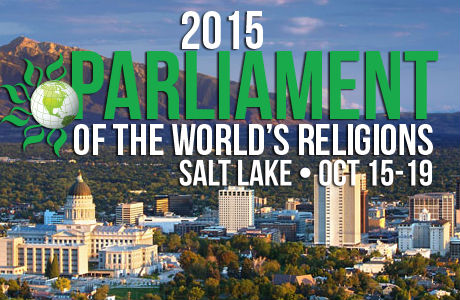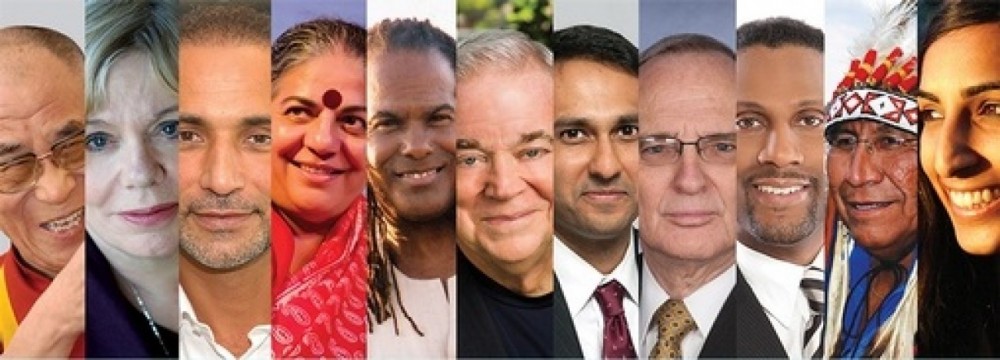Parliament of the World’s Religions
http://www.parliamentofreligions.org/
The first Parliament of the World’s Religions was held already in 1893, marking the beginning of efforts to develop a global dialogue on faith. This event was celebrated on the occasion of its centennial at a new Parliament in 1993. This led to a series of global meetings under the official name of the Parliament of the World’s Religions.
Council for a Parliament of the World’s Religions
The Council for a Parliament of the World’s Religions was founded in 1988 in Chicago as a non-profit organization in order to promote the tradition of the Parliament. The organization’s mission is to cultivate harmony among the world’s religious and spiritual communities and foster their engagement with the world and its guiding institutions in order to achieve a just, peaceful and sustainable world.
The 1893 World’s Congress of Religions, held in Chicago, was the largest and most spectacular event among many other congresses in the World’s Columbian Exposition. In order to fully use the potential of this unprecedented meeting, a series of events was held on the side of the exposition addressing the themes of anthropology, work, medicine, business and finance, literature, history, art, philosophy and science. The World Congress of Religions marks the first formal gathering of representatives of Eastern and Western spiritual traditions.

In 1993, the Parliament of the World’s Religions was convened in Chicago, with 8,000 people of different faiths coming together from all over the world to celebrate diversity and harmony to explore religious and spiritual responses to critical issues that confront us all. The tone for the assembly was set by a keynote speech and a groundbreaking document introduced by Hans Kung entitled “Towards a Global Ethic: An Initial Declaration”. The Declaration is a powerful statement of the ethical common ground shared by the world’s religious and spiritual traditions. The unique “Sourcebook for the Community of Religions” includes, unlike many text books, contributions by individual churches and spiritual groups. Among the prominent guests of the Parliament were the Dalai Lama and Cardinal Joseph Bernardin.

Over 7,000 participants from over 80 countries came to Cape Town in South Africa on the invitation of Nelson Mandela and Archbishop Desmond Tutu. The Parliament began with a presentation of the International AIDS Quilt to fight the epidemic in South Africa. The event continued with some 860 panel discussions, symposia and workshops, prayers and meditations, plenary sessions and performances. The Council for a Parliament of the World’s Religions presented a new document, “A Call to Our Guiding Institutions”, addressed to religion, government, business, education, and media. The book “Gifts of Service to the World” presented more than 300 projects which successfully changed the world for the better.

The first Parliament of the World’s Religions in Europe was gathered in the framework of the Universal Forum of Cultures. Nearly 9,000 participants focused on four urgent issues: the fight against religiously motivated violence, access to drinking water, the life of refugees around the world and the elimination of foreign debt in developing countries. In cooperation with UNESCO, the Parliament created the Pathways to Peace, a strong dialogue on promoting global solidarity in the face of increasing fear and violence.

The Parliament in Melbourne, Australia, was attended by 6,500 people. The discussions addressed global issues mainly through the prism of indigenous communities, including global climate change, globalization, sustainable development, and youth spirituality. The Australian government publicly apologized during the Parliament to the indigenous Aboriginal population. Among the prominent guests were the former US President Jimmy Carter and Ravi Shankar.

The central themes of the Parliament in Salt Lake City, held from 15-19 October 2015, were climate change, hate speech, war and violence, income inequality, human rights and dignity of women, emerging leaders, and indigenous peoples.


2017 Bratislava
Slovakia is the frontrunner for organizing the next forum of the Parliament of the World’s Religions in 2017.
